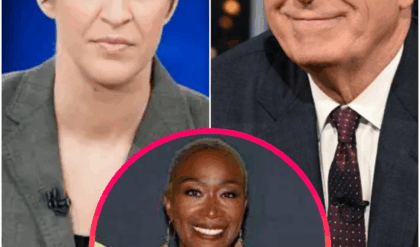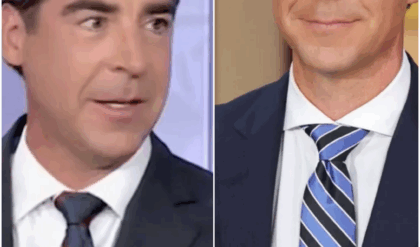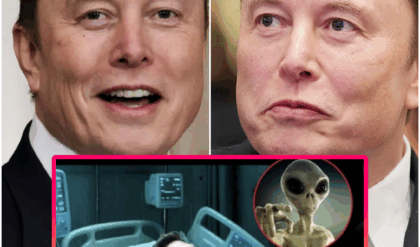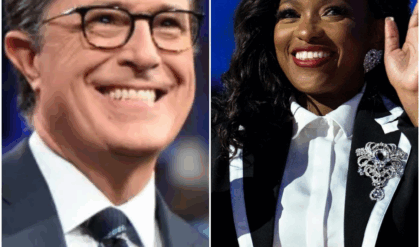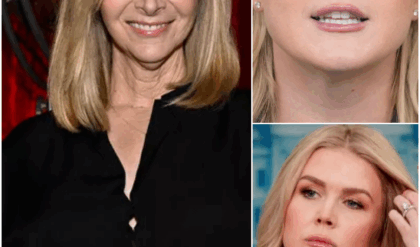Stephen Colbert Cheers Jimmy Kimmel’s Triumphant Return, Calls It a Victory for Free Speech
When Stephen Colbert stepped onto the stage of The Late Show on September 23, 2025, he wasn’t just carrying his usual monologue notes—he was carrying relief, defiance, and a rallying cry for free expression. Hours before his CBS taping, Disney announced that Jimmy Kimmel Live! would return to ABC after an unprecedented suspension, and Colbert seized the moment to celebrate his longtime friend and fellow late-night host.
“Just a few hours before we taped this broadcast, we got word that our long national late-night-mare is over,” Colbert declared, drawing a roar from the studio audience. “Disney announced that Jimmy Kimmel Live! will return to air on ABC tomorrow. Wonderful news for my dear friend Jimmy and his amazing staff.”

It was a moment that transformed a routine monologue into a broader statement about the fragility—and resilience—of free speech in America.
The Suspension That Shook Late Night
The controversy began earlier in September, when ABC abruptly yanked Jimmy Kimmel Live! from the air. The official explanation was vague: a temporary suspension to “avoid inflaming tensions.” But insiders quickly revealed a far more troubling backdrop.
Brendan Carr, the Federal Communications Commission (FCC) chairman appointed under the Trump administration, had warned Disney executives that Kimmel’s biting monologue about conservative commentator Charlie Kirk’s death “crossed a line.” On a far-right podcast, Carr made his threat explicit: “We can do this the easy way or the hard way.”
Within 48 hours, Kimmel’s show was off the air.
To many, including Colbert, the move was blatant censorship. “With an autocrat, you cannot give an inch,” Colbert warned in a fiery Late Show monologue on September 18. “Jimmy, I stand with you and your staff 100%.”
Colbert’s Weapon: Satire and Solidarity
Colbert has long blurred the line between comedy and political commentary, but his defense of Kimmel was among his most forceful. He skewered Disney with a parody of “Be Our Guest” from Beauty and the Beast, featuring a lampooned Lumiere urging executives to “shut your trap” and follow “the new rule at ABC—don’t make fun of Donny T.”
He also mocked the corporate panic. “Executives at ABC were, quote, ‘pissing themselves all day,’” Colbert quipped. “On the bright side, that proves Disney is number one in streaming.”
The jokes hit their mark, but the message was deadly serious: silencing comedians in deference to political pressure strikes at the core of democratic values.
Kimmel Breaks His Silence
For his part, Jimmy Kimmel admitted to being stunned by the suspension. “I think we were all shocked and disappointed that this kind of thing is happening in America,” he later told Variety. “And also disappointed that we don’t see more people on the right stepping up and saying, ‘Hey, this is no good.’”
Kimmel went further, stressing that free speech transcends partisanship. “If Joe Biden had used his muscle to get Sean Hannity kicked off the air, I would not support that,” he said. “In fact, I would support Hannity in that situation. One of the founding principles of this country was free speech. But people don’t seem to care about protecting it unless you agree with them.”
A Brotherhood of Late-Night Hosts
The episode highlighted a rare bond among late-night hosts, who often compete for the same viewers. When CBS announced in July that it would cancel The Late Show in May 2026, Kimmel publicly supported Colbert, even putting up “For Your Consideration” billboards to help Colbert secure an Emmy. The campaign worked—Colbert won Outstanding Talk Series at the 2025 ceremony.
Now the roles were reversed, with Colbert returning the favor. His visible joy at Kimmel’s reinstatement wasn’t just about professional camaraderie—it was about shared survival in an increasingly hostile media environment.
The Political Pressure Behind the Curtain
The FCC’s role in Kimmel’s suspension remains deeply controversial. Carr’s warning about “community values” was widely interpreted as a coded threat to broadcasters. While ABC executives privately acknowledged that Kimmel hadn’t crossed any explicit regulatory line, the fear of government retaliation was enough to push them into pulling the show.
Paramount Global, CBS’s parent company, has faced similar speculation. When it announced Colbert’s upcoming cancellation, critics noted the timing: Paramount was seeking FCC approval for its merger with Skydance Media. Both companies denied any link, but the optics fueled suspicions of political horse-trading.
The common thread? Networks appear increasingly willing to sacrifice talent and content to stay in regulators’ good graces.
Public Backlash and Industry Reckoning
The suspension triggered a firestorm across social media. Hashtags like #StandWithKimmel and #LateNightFreeSpeech surged on X (formerly Twitter), with fans and celebrities rallying behind the comedian. Even political figures who often criticize Kimmel defended his right to speak freely.
Senator John Fetterman praised Kimmel’s resilience, while conservative commentator Ben Shapiro, no ally of late-night hosts, tweeted: “Free speech means protecting voices you don’t like. If Kimmel’s suspension was political, it’s unacceptable.”
ABC affiliates reportedly fielded thousands of angry calls, and advertisers threatened to pull sponsorships unless the show was reinstated. By the time Disney announced Kimmel’s return, the backlash had already become a PR nightmare.
Colbert: Martyr or Maverick?
Colbert, never one to waste an opportunity for satire, joked that with Kimmel back, he could once again “enjoy” his Emmy win. “Once more, I am the only martyr in late nights,” he said with a grin. “Unless, CBS, you want to announce anything?”
But beneath the humor lies a sobering reality: Colbert has just one more season before The Late Show ends. Industry insiders speculate that he may pivot to a digital platform or even politics. Some believe his fiery defense of Kimmel is a preview of a new role as a cultural commentator unbound by network constraints.

What Comes Next for Late Night?
The Kimmel-Colbert saga underscores the precarious future of late-night television. Once the undisputed kings of American pop culture, hosts now face shrinking audiences, political scrutiny, and the relentless rise of digital platforms.
Yet the outpouring of support for Kimmel suggests there’s still a hunger for unfiltered voices willing to push boundaries. If networks cave to political pressure, they risk losing not just their stars but their credibility with viewers who value authenticity.
Colbert framed the moment perfectly: “My community values are freedom of speech.” It was a line that resonated far beyond the walls of CBS, echoing through homes, feeds, and newsrooms across the country.
A Win for Comedy, A Warning for Democracy
Jimmy Kimmel’s return to ABC is more than a programming decision—it’s a cultural litmus test. It shows that while censorship may win battles, public backlash can still win wars.
For Stephen Colbert, the episode reaffirmed his role as late night’s conscience, willing to speak uncomfortable truths even when they risk his own career. For Kimmel, it was a reminder that comedy, at its best, isn’t just entertainment—it’s resistance.
And for viewers, it was proof that the fight for free speech is no longer abstract. It’s playing out, night after night, on the very stages where laughter is supposed to reign.
As Colbert told his audience with both relief and defiance: “Our long national late-night-mare is over.”
At least, for now.

